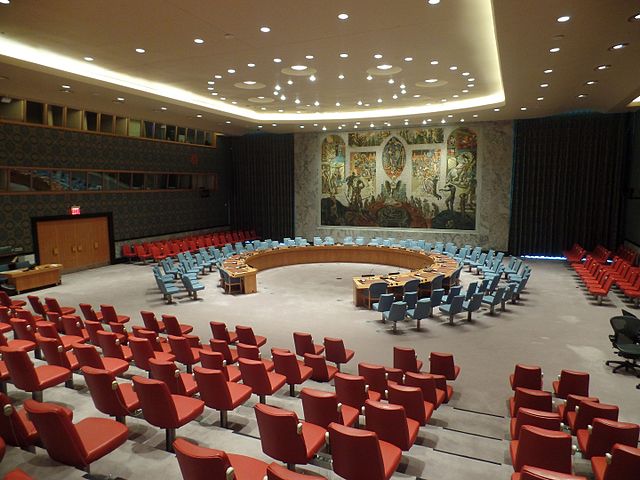China willing to talk on terrorism
March 17, 2019 | Expert Insights

China said it was willing to have more discussions with all parties concerned including India on blacklisting the head of Pakistan-based militant group Jaish-e-Mohammed (JeM), which claimed responsibility for the attack on an Indian paramilitary convoy in disputed Kashmir in February.
Background
Jaish-e-Mohammed is a Pakistan-based Deobandi jihadist terrorist group active in Kashmir. The group's primary motive is to separate Kashmir from India and merge it into Pakistan. Since its inception in 2000, the terror outfit has carried out several attacks in the state of Jammu and Kashmir. It projects Kashmir as a "gateway" to the entire India, whose Muslims are also deemed to be in need of liberation.
Masood Azhar is the founder and leader of the terrorist organisation Jaish-e-Mohammed, active mainly in the Pakistani administered Azad Kashmir. Pakistani authorities took him into 'protective custody' after the Pathankot attack in India, which was widely reported as an "arrest". However, he was seen to be free in December 1999. India had listed Masood Azhar as one of its most wanted terrorists due to his history of militant activities. India has been continuously trying to place Azhar on the UN Security Council's counter-terrorism sanctions list, a move supported by all other countries but vetoed by China.
On 14 February 2019, a convoy of vehicles carrying security personnel on the Jammu Srinagar National Highway was attacked by a vehicle-bound suicide bomber in Lethpora near Awantipora, Pulwama district, Jammu and Kashmir, India. The attack resulted in the death of 44 Central Reserve Police Force (CRPF) personnel and the attacker. The responsibility for the attack was claimed by the Pakistan-based Islamist militant group Jaish-e-Mohammed. He approved the attacks from the Pakistani Army Hospital where he is under protective custody. After the attack, France, United Kingdom and the United States moved a proposal at the UN Security Council to ban Masood. The motion was vetoed yet again by China.
Analysis
China prevented a U.N. Security Council committee on Wednesday from blacklisting JeM founder Masood Azhar.
India said it was disappointed at the block, which sparked calls for boycotts of Chinese products on domestic social media, while the United States said it was counter to a goal it shared with China of achieving regional peace and stability.
In a statement faxed to Reuters late on Friday, China’s Foreign Ministry reiterated that the “technical hold” on the blacklisting was to give more time for the committee to have further consultations and study on the issue.
China hopes the committee’s actions can “benefit reducing the tense situation and protect regional stability”, the ministry said, responding to the boycott calls in India.
“China is willing to strengthen communication with all parties, including India, to appropriately handle this issue,” it added, without elaborating.
The United States, Britain and France had asked the Security Council’s Islamic State and al Qaeda sanctions committee to subject Azhar to an arms embargo, travel ban and asset freeze. The 15-member committee operates by consensus.
China had previously prevented the sanctions committee from sanctioning Azhar in 2016 and 2017.
The Feb. 14 attack that killed at least 40 paramilitary police was the deadliest in Kashmir’s 30-year-long insurgency, escalating tension between the nuclear-armed neighbours, which said they shot down each other’s fighter jets late February.
Western powers could also blacklist Azhar by adopting a Security Council resolution, which needs nine votes in favour and no vetoes by Russia, China, the United States, Britain or France.
Blacklisted by the U.N. Security Council in 2001, JeM is a primarily anti-India group that forged ties with al Qaeda.
Meanwhile, France has decided to freeze the assets of Jaish-e-Mohammed (JeM) founder and leader Masood Azhar, the French government said.
A joint statement issued by the French interior ministry, finance ministry and foreign ministry added that France would discuss putting Masood Azhar on a European Union list of people suspected of being involved in terrorism.
Pakistan is under pressure from global powers to act against groups carrying out attacks in India, including Jaish-e-Mohammed, which claimed responsibility for a Feb. 14 attack in Kashmir that killed at least 40 Indian paramilitary police.
Assessment
Our assessment is that Pakistan’s reluctance to act on terrorism despite claiming to be a victim of terrorism itself is contradictory in nature. We believe that if Pakistan is serious about peace talks, it must recognise the true nature of violent non-state actors which operate within its own borders.
Image Courtesy: Thomas Park (https://commons.wikimedia.org/wiki/File:UN_Security_Council.jpg), https://creativecommons.org/licenses/by-sa/4.0/legalcode








Comments